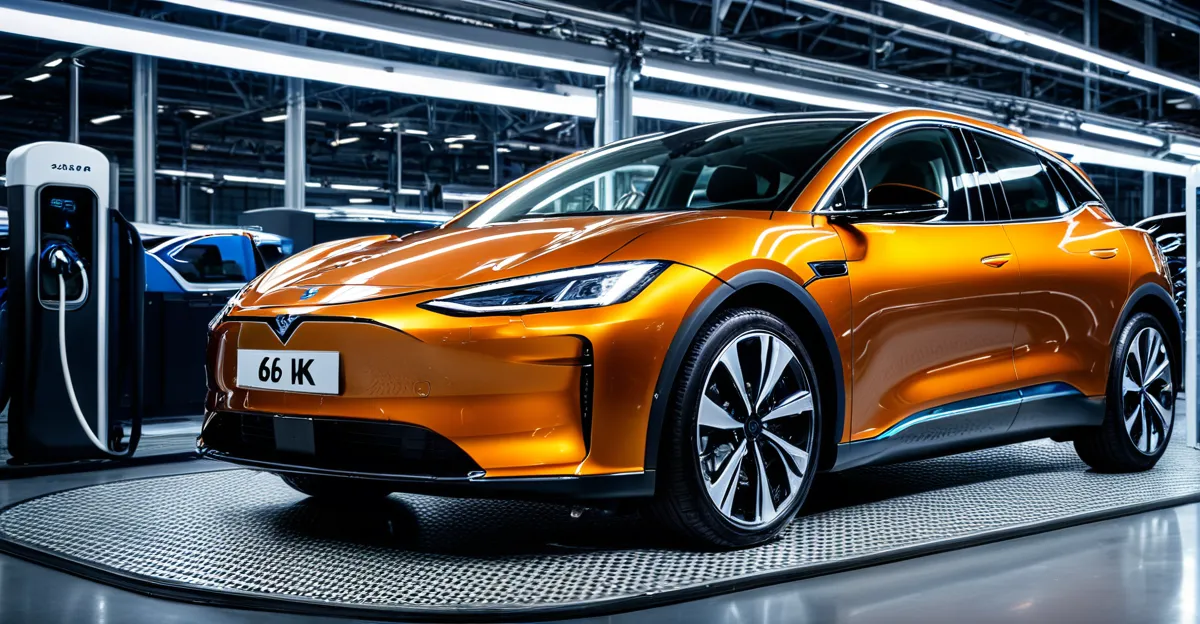Immediate Impacts of the Electric Vehicle Shift on the UK Automotive Sector
The rise of electric vehicles (EVs) is rapidly reshaping the UK automotive sector, driven by evolving industry trends and consumer demand. One clear impact is the acceleration of EV adoption, with more drivers opting for electric models due to growing environmental awareness and improvements in EV technology. As a result, manufacturers in the UK automotive sector have adjusted their priorities, focusing on developing competitive EV lines to meet this surge.
Domestic and global policies significantly influence these shifts. Regulations targeting emissions reductions compel the UK automotive sector to innovate and transition from traditional internal combustion engine vehicles. This has led to a stronger emphasis on sustainable production and electric drivetrains, directly aligned with broader environmental targets.
Also to discover : What are the challenges faced by UK automakers in adopting AI technologies?
Consumer demand for electric vehicles continues to rise, shaped by increased model availability and attractive incentives. Together, these factors underpin a fundamental change in market dynamics. The UK automotive sector is not only adapting but also leading trends by pioneering EV integration and responding swiftly to policy signals and buyer preferences, marking a pivotal moment in the industry’s evolution.
Government Policies and Incentives Shaping EV Adoption
Government policies are pivotal in accelerating electric vehicle uptake within the UK automotive sector. The UK government EV policy centers on ambitious emissions reduction targets and clean transportation goals. Key initiatives include phased bans on petrol and diesel cars and expanded funding for EV research and infrastructure.
Also to read : How Will Electric Vehicles Transform Urban Infrastructure?
Electric vehicle incentives offered by the government significantly influence consumer choices. These include grants for purchasing EVs, reduced road taxes, and exemption from congestion charges. Such incentives lower upfront costs and encourage drivers to switch to cleaner vehicles.
Regulation impacts manufacturers directly, pushing automakers to innovate and invest in EV technology. Strict emissions standards compel UK automotive sector firms to modify production lines and improve battery efficiency. Compliance with these regulations is not optional but essential for market participation, steering industry trends toward zero-emission vehicles.
Together, these government actions create a powerful framework supporting EV adoption. By aligning policy, incentives, and regulation, the UK government enables the automotive sector to transition effectively while responding to growing demand for environmentally friendly transportation. This synergy fosters sustained momentum toward a decarbonized automotive future.
Manufacturing Adaptations in Response to EV Growth
The UK automotive sector is undergoing significant manufacturing adaptations due to the surge in electric vehicle (EV) demand. Traditional assembly lines are being retooled to accommodate EV production, requiring substantial investment in new technologies specific to electric drivetrains and battery integration. This shift promotes automotive innovation, driving advancements in manufacturing processes and material usage.
Workforce training is another critical aspect. Employees must acquire new skills tailored to EV design and assembly, including battery safety, electric motor handling, and software integration. This focus enhances the sector’s capacity to produce high-quality EVs efficiently and sustainably.
A growing number of UK-based manufacturing hubs specialize in electric vehicle production. These hubs serve as epicenters for innovation and collaboration between automakers, suppliers, and technology firms. They enable faster adaptation to evolving industry trends and consumer demands while leveraging local expertise and infrastructure.
Such manufacturing changes are essential for the UK automotive sector to remain competitive globally. By embracing these adaptations, the industry aligns with shifting market dynamics, ensuring resilience amid the ongoing electric vehicle revolution.











